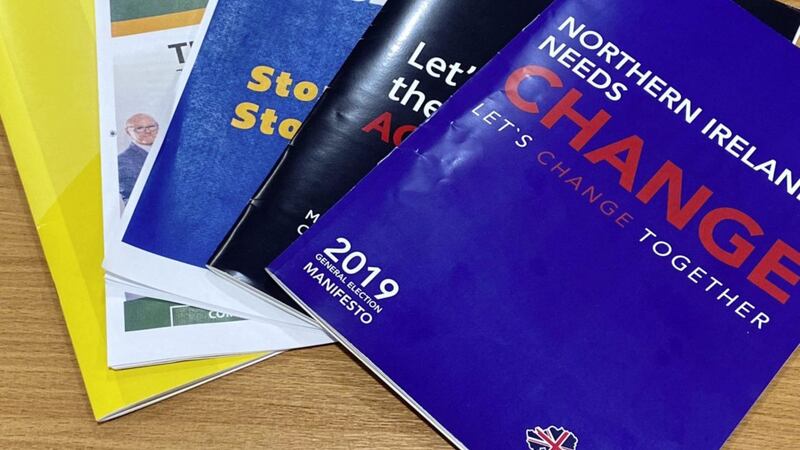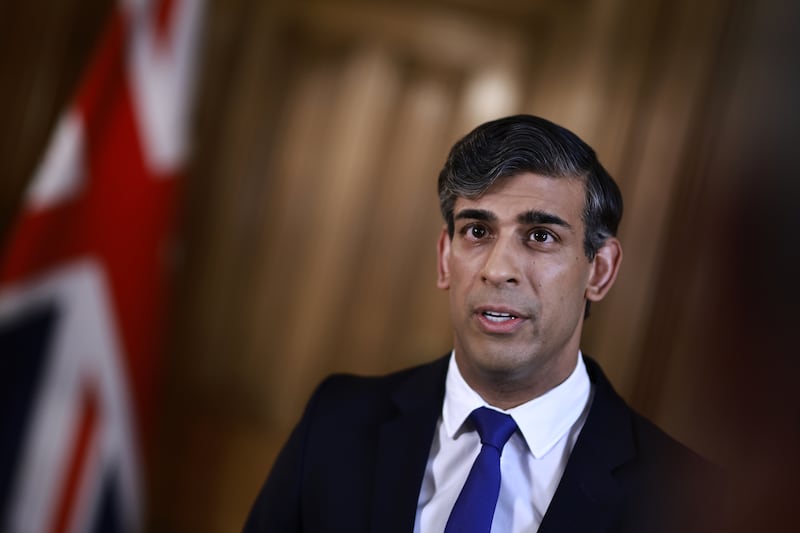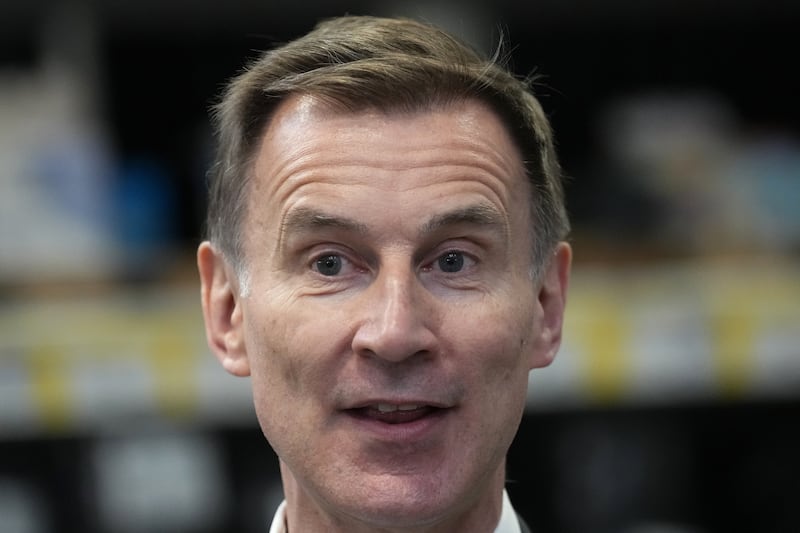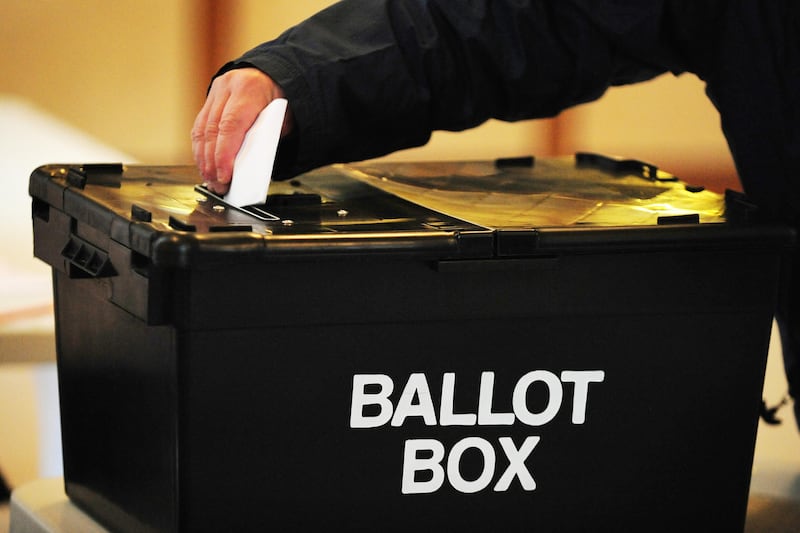IT'S fair to assume that only the most politically nerdy among you have read one – never mind all – of the manifestos published by Northern Ireland's main parties ahead of Thursday's Westminster poll.
They tend not to be widely distributed and even those who receive a physical copy are likely to discard them relatively quickly, rarely returning to their contents to see if a party has remained true to its pledges.
However, if you are especially keen to scrutinise a party's policy proposals, the documents are available on their respective websites.
The manifesto serves two primary purposes.
It sets out a party's stall, showcasing the policy areas they regard as important and how in the event of assuming power they would address these issues. Canvassers should ideally have studied the manifesto's contents and be well equipped to answer questions from inquisitive constituents.
A manifesto's other main purpose is to provide a focus for the media at its launch, ensuring a party receives coverage of its campaign, candidates and key policy initiatives.
This isn't always necessarily positive, as the DUP will testify, having had to endure a degree of ridicule after advocating firstly a bridge to Scotland and more recently, interconnection with Iceland, enabling households and businesses in Northern Ireland to utilise power generated by the island's volcanoes.
But to give the Arlene Foster’s party its due, its manifestos tend to be better researched and presented than the rest.
Alan Meban of the Slugger O'Toole website points to the limited influence of the north's 18 representatives in a parliament of 650 MPs and says the likelihood of any party's policies being adopted to a notable degree is remote.
"Most Westminster manifestos are aspirational stuff because there's very little prospect of Northern Ireland parties wielding the necessary power to implement their pledges," he says.
He also notes how the north's parties tend to fill their general election manifestos with devolved issues that don't fall under Westminster's remit.
"There's lots of local issues in each of the manifestos despite the fact that those elected tend not to have responsibility at that level," he says.
On the manifestos published in recent weeks, he describes Alliance's as "wordy and quite detailed", the SDLP's is "careful not to have too many pledges, with a strong focus on Brexit", while the Ulster Unionists provide an inadvertent reminder that only one of its 16 candidates is female.
"Sinn Féin's manifesto is all about Brexit and unity but in the meantime the health crisis has become the major issue of the election, and their manifesto is quite weak in that regard," says Mr Meban.
"The DUP has quite a lot of detail on a lot of issues, reflecting the party's potential to be in a position of power similar after the 2017 election when they struck the confidence and supply deal with the Tories.
“If there’s a hung parliament they can simply hand over the document to whoever they’re dealing with and say ’these are the sort of issues that concern us’."
He points out that few parties ever spell out the detail of their pledges and few are ever held to account on the content of their previous manifestos.
Ulster University senior economist Esmond Birnie highlights how the north's five parties make a lot of spending commitments but almost none are costed.
Similarly, they tend to promise tax cuts yet it is "extremely rare" for them to advocate a reduction in public spending.
He says that all the main parties have "come up with some genuinely good ideas".
"But sometimes their plans could be described as too clever by half – sophisticated but not likely to survive contact with various realities, including HM Treasury."
Overall, the material in the manifestos tends to veer towards vague, broad brush ambitions rather than carefully costed, detailed policy that could be adopted within weeks of the election.
Arguably nothing illustrates this better than the pledges to combat climate change, a policy area that has tended to be overlooked by Northern Ireland's parties in the past but has suddenly become fashionable, even with those parties whose ranks include people who deny man-made climate change.
The manifestos are replete with soundbites about "climate catastrophe", "zero-carbon targets" and a "clean, green future", yet none outlines how to address specifically emissions from the north's agriculture sector, the single biggest contributor to the region's climate change gas output.
:::::::::::::
BITE-SIZE MANIFESTOS
Alliance – Oppose Brexit and advocate a second referendum; reduce the UK's net greenhouse emissions; make political donations more transparent.
DUP – Oppose a border poll; oppose a regulatory border in the Irish Sea; bring Armed Forces Day to Northern Ireland.
Sinn Féin – Secure a border poll; deal with the climate emergency; extend welfare mitigation package.
SDLP – Revoke Article 50; a green new deal; stop Brexit.
UUP – Declare a 'health emergency'; tackle the climate crisis; abolish Air Passenger Duty.








